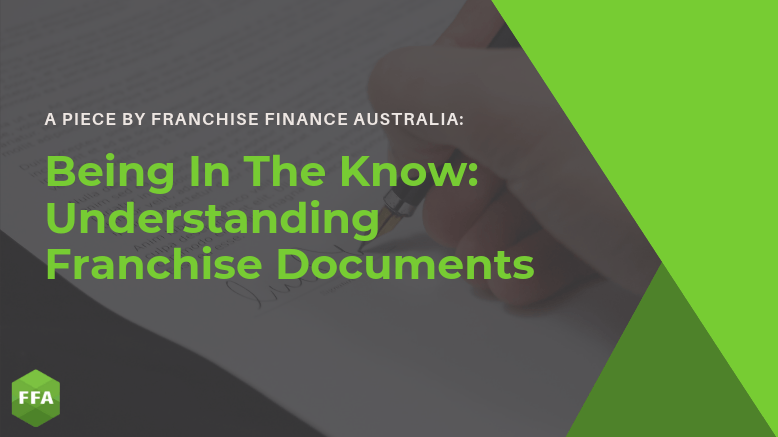Being In The Know: Understanding Franchise Documents

Buying into a franchise is a challenging and rewarding commitment, for many it is their first time starting a business, so it is no surprise they may feel overwhelmed at the volume of important documents required. Before entering into any Franchise Agreement, it is important to understand what is required and what each document means.
When purchasing a franchise, there are a range of documents that the new business owner will have to review and sign. The core three are the Information Statement, Disclosure Statement and Franchise Agreement. In addition to this all franchisees must be provided with a copy of the Franchising Code of Conduct. The Franchising Code of Conduct is a mandatory industry code across Australia that regulates the conduct of franchising participants towards each other.
Information Statement
The Information Statement is a generic statement highlighting the risks and rewards of franchising. The information statement should be provided to the prospective franchisee as soon as practicable after they formally apply, or express an interest in, acquiring a franchised business.
Disclosure Statement
The purpose of this document is to supply key information about the nature of the franchise system and to help the franchisee make an informed business decision about entering the franchise. It is information the franchisor is required to tell new franchisees under the Code. It should be dated and signed and has to be in a particular format and structure, as outlined in the code, to ensure that the incoming franchisee can find information easily.
It must include:
A warning
End of term Arrangements
Financial Details
Franchisee details
Franchisors details
Goods and services
Intellectual property
Marketing Funds
Payments
Site and territory
Specific dates
Takeaways
Franchise Agreement
The franchise agreement forms the contract between franchisor and franchisee. It sets out each party’s rights and responsibilities in relation to the franchised business as well as each other. The agreement is a contract which you usually ‘enter’ by signing a written agreement, but a franchise agreement can also be a verbal arrangement.
This generally includes:
The premises location
Exclusive or non-exclusive territory
Whether you have to supply all of the goods or services sold by the franchise
Payments (franchise fee, establishment costs and ongoing expenses)
The franchisor must also supply:
A lease or hire purchase agreement for goods
An agreement under which the franchisee gains ownership of, or is authorised to use, any intellectual property
A security agreement, including a guarantee, mortgage, security deposit, indemnity, loan agreement or obligation to provide a bank guarantee to a third party
A confidentiality agreement
An agreement not to carry on business within an area or for a time after the franchise agreement is terminated.
Before entering into any franchise, franchisees should consult a team of professionals and seek legal, financial and business advice. To avoid any potential issues, all documents should be thoroughly checked.





